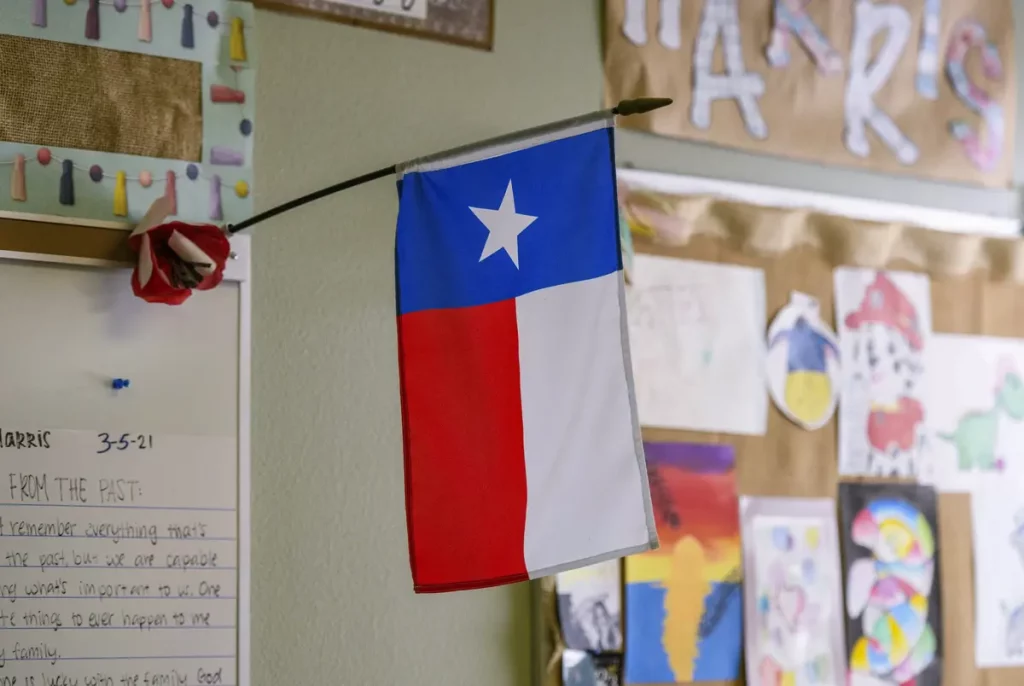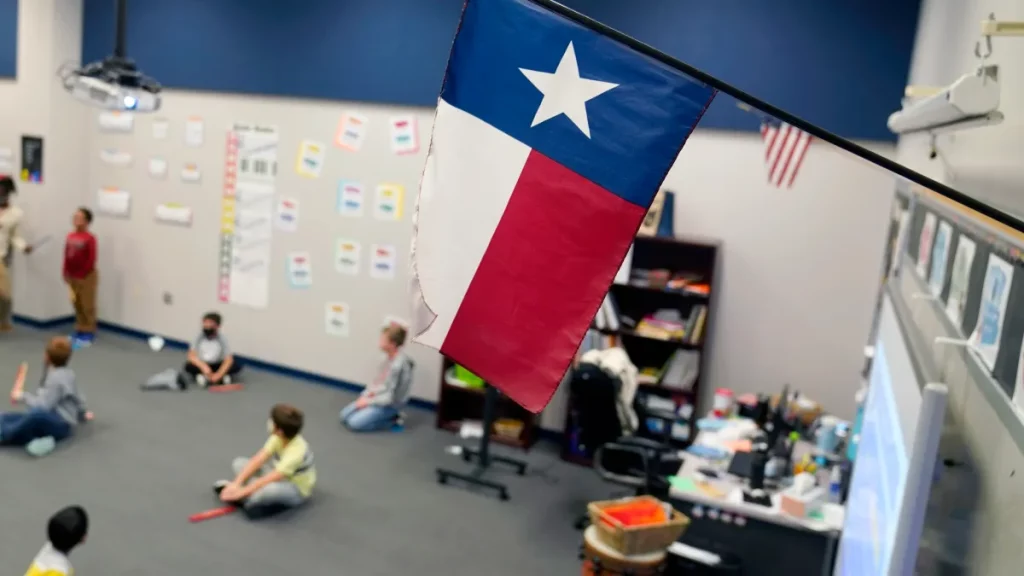In a sweeping move that underscores the growing influence of Christian nationalism in Texas politics, the state Senate on Tuesday advanced two deeply divisive pieces of legislation that would require public school classrooms to display the Ten Commandments and authorize schools to set aside time for prayer and scripture reading.
Senate Bill 11—the so‑called “school prayer” bill—passed final approval by a 23‑7 margin, while Senate Bill 10—the Ten Commandments mandate—earned initial approval in a 20‑10 vote. Both bills now head to the Texas House, where their fate remains uncertain amid fierce legal and cultural debate.
What the Bills Would Do?
If enacted, SB 10 would compel every public elementary and secondary classroom in Texas to display a framed or poster copy of the Ten Commandments in a “conspicuous place,” specifying a minimum size of 16 by 20 inches. SB 11 would empower school boards—not individual students—to designate time during non‑instructional periods (such as before or after classes) for students to read religious texts and pray, with parental consent required for participation. Proponents emphasize that neither bill forces participation; critics argue they institutionalize Christian practice in taxpayer‑funded schools.
Political Context: A Priority for Conservative Leaders
Both bills sit atop Lt. Gov. Dan Patrick’s legislative “priority” list, signaling broad Republican support. Authored by Sen. Phil King (R‑Weatherford) and Sen. Mayes Middleton (R‑Galveston), the proposals reflect a broader strategy to “restore moral clarity” in public education—an objective King said students are “crying out” for and Middleton framed as reversing decades of moral decline. Middleton invoked Texas’s motto “In God We Trust,” asserting that “litigious atheists” should not dictate whether students exercise religious liberties in schools.
Arguments from Supporters
Senate supporters argue that recent U.S. Supreme Court rulings, notably the 2019 decision in Kennedy v. Bremerton School District, have created legal openings for greater religious expression in public life. Testifying before the Senate committee, coach Joe Kennedy and First Liberty attorney Matt Krause framed the Ten Commandments as foundational to American law and morality, arguing their inclusion in classrooms would foster societal virtue and deter violence. Sen. Tan Parker (R‑Flower Mound) cited a study claiming only 25% of children attend church—calling that figure “absolutely horrific” and justifying state action.
Opposition from Democrats and Faith Leaders
Democrats and faith leaders from diverse traditions sharply criticized the measures as unconstitutional and exclusionary. Sen. Nathan Johnson (D‑Dallas) warned SB 11 would expand government into private religious practice, infringing on the rights of non‑Christian Texans. A coalition of 166 faith leaders—including Sikh, Baptist, Jewish, and Buddhist clergy—sent a letter condemning the bills as a step toward turning public schools into “Sunday schools.” Critics argue the measures violate the Establishment Clause by privileging one religious tradition over others and risk alienating Texas’s growing non‑Christian population.
Constitutional and Legal Challenges Loom
The bills’ proponents remain confident of surviving judicial scrutiny, pointing to a string of conservative Supreme Court decisions that have loosened church‑state boundaries. Yet legal experts caution that Stone v. Graham (1980) explicitly prohibits government‑mandated religious displays in classrooms. Louisiana’s near‑identical Ten Commandments law was blocked in federal court last November, and its appeal is pending in the conservative Fifth Circuit—whose jurisdiction includes Texas. Opponents predict swift litigation if Texas adopts similar mandates, setting the stage for a renewed Supreme Court showdown over school prayer and religious displays.
Part of a Broader Push to Infuse Religion into Public Schools

The bills come amid a flurry of Texas legislation aimed at expanding Christianity’s role in education and public life. Recent measures have required classrooms to display “In God We Trust,” authorized unlicensed religious chaplains to serve in schools, and offered taxpayer‑funded vouchers to private religious schools. The state’s optional “Bible‑infused” reading curriculum—approved last year by the Texas Education Agency—has also drawn criticism for blending scripture with core academic subjects. Together, these efforts signal an intentional shift toward embedding Christian ideology in public institutions.
Potential Impact on Students, Educators, and Communities
If implemented, the bills would force school districts to weigh logistical, financial, and legal considerations: purchasing framed commandments, training staff on permissible prayer periods, and defending against lawsuits. For students of minority faiths or no faith, the measures risk creating an environment of exclusion or coercion. Educators may face dilemmas over balancing free exercise rights with constitutional prohibitions on government‑sponsored religion, potentially exacerbating tensions in already polarized communities.
Next Steps and Outlook
Having cleared the Senate, SB 10 and SB 11 now move to the Texas House, where prior iterations stalled. With strong backing from Republican leadership—and emboldened by recent court rulings—supporters are optimistic of final passage before session adjournment. Opponents, however, vow to marshal legal challenges and public pressure to block enactment, framing the fight as central to preserving religious freedom and the secular character of public education. The ultimate outcome will test the evolving boundaries of church‑state separation in an era of resurgent Christian nationalism.

